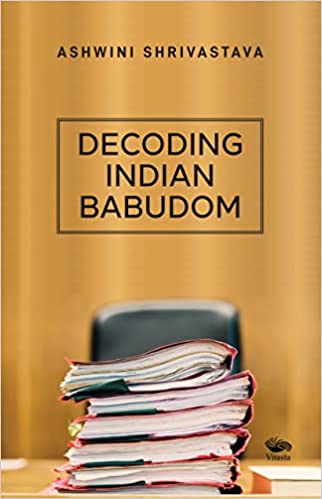There is a new breed of officers who are using social media to communicate with the world at large.
Indian bureaucrats have been in the news for all kinds of reasons. Some have done exceptional work and remained in the backstreets, some have lost jobs during a Prime Minister’s press conference and some have drawn flak for their calculations of the government’s lost earnings. And then some have been castigated for being close to some extremely powerful ministers in the national capital.
But then they have, like the foundation of a skyscraper, worked like a steel frame, slogging out invisibly. When challenged, they have risen up to the occasion. And performed commendably. Once, Prime Minister Narendra Modi asked bureaucrats in New Delhi to reach office in time and avoid spending time at the Delhi Golf Club and Delhi Gymkhana Club. The bureaucrats were upset. But they did not complain.
Now, an interesting book, Decoding Indian Babudom by Ashwini Srivastava, an intrepid journalist with the Press Trust of India (PTI) has raised some interesting issues and challenges that the author says cripples the country’s bureaucratic system. Srivastava, it is clear from the book, has several questions up his sleeves and he expects the answers from the bureaucracy because he is worried about
Srivastava says character should be the highest virtue among bureaucrats. He says due to the ever changing socio-economic situation inside and outside the country, it is desired that civil servants be innovative, accountable and efficient while maintaining a sterling character, free from all kinds of allurement. “There is a strong perception about bureaucracy that it is by nature corrupt, besides being snobbish and procrastinating.”
Srivastava, it seems to me, wants a Ram Rajya in bureaucracy and wants bureaucrats to stand tall, withstand pressures of all kinds. He time and again highlights reasons why bureaucracy in India is in dire need of radical changes and why the ailments of bureaucracy are contagious, more communicable than the novel coronavirus and that it is fast affecting the people of a billion plus nation.
The author makes some important points, taking some cues from what PM Modi said once, that does it augur well for the nation if IAS officers are left to run fertiliser plants and airlines. It is indeed a very valid point. There are 5,166 IAS officers in India as against the sanctioned strength of 6,746. Does Srivastava want all of them to fall in line and perform brilliantly? Well, that is almost impossible.
Almost like the rulers of the nation, Srivastava makes several suggestions. Why not put an Indian Revenue Service officer as the Revenue Secretary and an officer of the Indian Audit and Accounts Service as the big boss of the Comptroller and Auditor General of India. Well, those are brilliant suggestions but who will bell the cat?
The author blames the bureaucracy for their mishandling of the Covid crisis. He rightly says: “It is the government’s duty to ensure the people’s basic needs of food, clothes and shelter are taken care of.” That is a very valid point, perhaps the haunting images of the poor silently walking back in blistering heat for long hours to reach their villages disturbed Srivastava. Migrant labourers were badly hit as the lockdown restrictions resulted in closure of various industrial units., offices and other activities that brought employment.
Srivastava is not wrong. But he also knows he cannot change the system overnight. You need to be a part of the system to change the system, as Atul Kulkarni said in the Madhur Bhandarkar movie Page3.
There lies the answer.
Maybe the journalist can walk up to the Prime Minister’s Office (PMO) and present them a memo about what he thinks are right, what he thinks are wrong and what he thinks can never be right or wrong.
Bureaucrats do work, Srivastava must know. They often get hemmed in by powerful politicians but they have genuinely worked hard to handle grave disasters like Gujarat earthquake, Odisha and Bengal cyclones, Kerala floods and also Covid. Now the one named last was devastating, no one was ready for it. But then, as my friend Anil Swarup once said, the only time a common man gets to know about a civil servant is when things have gone wrong, while his good deeds, usually, fail to earn him the recognition. But Srivastava can live in hope, things are changing and changing fast. There is a new breed of officers who are using social media to communicate with the world at large. Let’s not forget that bureaucrats in India have been at the receiving end for far too long. Now, the new age officers are changing the nation by providing facts and roadshows of their achievements.
This should be good news for Srivastava. The book is an interesting read.

